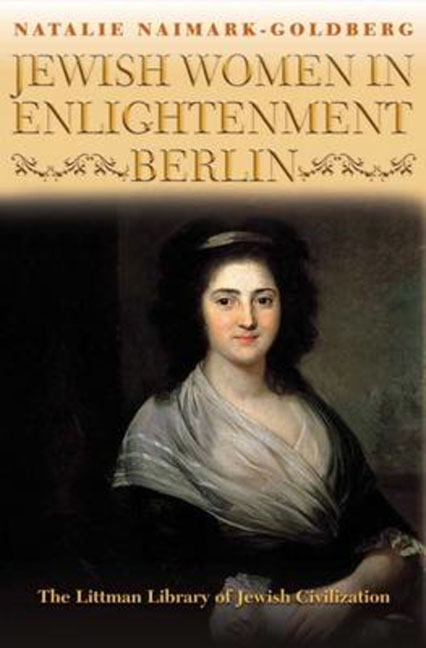Book contents
- Frontmatter
- Dedication
- Acknowledgements
- Contents
- List of Illustrations
- Note on the Translation of Sources and the Use of Names
- Note on Transliteration
- Introduction
- 1 Private Letters: An Alternative Sphere for Cultural Discourse
- 2 Jewish Women and the Reading Public
- 3 Going Public: Jewish Women in the Field of Literature and Publishing
- 4 Sociability and Acculturation in German Spas
- 5 Social Gatherings in Private Homes
- 6 Female Emancipation
- 7 Between Acculturation and Conversion
- 8 Conclusion
- Bibliography
- Index
6 - Female Emancipation
- Frontmatter
- Dedication
- Acknowledgements
- Contents
- List of Illustrations
- Note on the Translation of Sources and the Use of Names
- Note on Transliteration
- Introduction
- 1 Private Letters: An Alternative Sphere for Cultural Discourse
- 2 Jewish Women and the Reading Public
- 3 Going Public: Jewish Women in the Field of Literature and Publishing
- 4 Sociability and Acculturation in German Spas
- 5 Social Gatherings in Private Homes
- 6 Female Emancipation
- 7 Between Acculturation and Conversion
- 8 Conclusion
- Bibliography
- Index
Summary
ONE OF THE BEST-KNOWN outcomes of the age of Enlightenment for Jews in central and western Europe was the public debate that developed on the issue of civil emancipation towards the end of the eighteenth century. Seemingly contradictory ideas about the Jews that had gained currency following the religious wars of the seventeenth century determined the framework in which their situation was analysed and in which the granting of civil rights was demanded. On the one hand, the principle of tolerance required that an effort be made to improve the Jews’ civil status; on the other hand, the prevalent unfavourable image of the Jews as a purportedly morally defective nation required that this effort be matched by steps to bring about their moral regeneration. This approach was supported by the Prussian bureaucrat Christian Wilhelm von Dohm in his famous and influential book of 1781, Uber die burgerliche Verbesserung der Juden. This treatise prompted a public discussion on the question of Jewish emancipation in the German lands (and beyond), and shaped the debate on the subject over the next hundred years.
Among those who joined the debate over the civil status of the Jews in the wake of Dohm's book were not only German intellectuals and bureaucrats but also the maskilim. From the early 1780s, and especially after the death of Frederick the Great in 1786, when hopes of achieving civil rights intensified with the crowning of a new Prussian king, the maskilim drafted petitions and published reform proposals addressed on the one hand to fellow Jews and on the other hand to policy-makers. To their Jewish brethren they issued exhortations to prepare themselves for emancipation by abandoning what they perceived as misguided customs and prejudices and improving their moral character. From Christian rulers they asked for the exercise of the enlightened ideals of tolerance and equality in recognition of Jews as individuals worthy of the same rights and obligations as Christian citizens, and in redress of the historical injustice which had consigned the Jews to their current exclusion from civil and political society.
- Type
- Chapter
- Information
- Jewish Women in Enlightenment Berlin , pp. 216 - 256Publisher: Liverpool University PressPrint publication year: 2013



